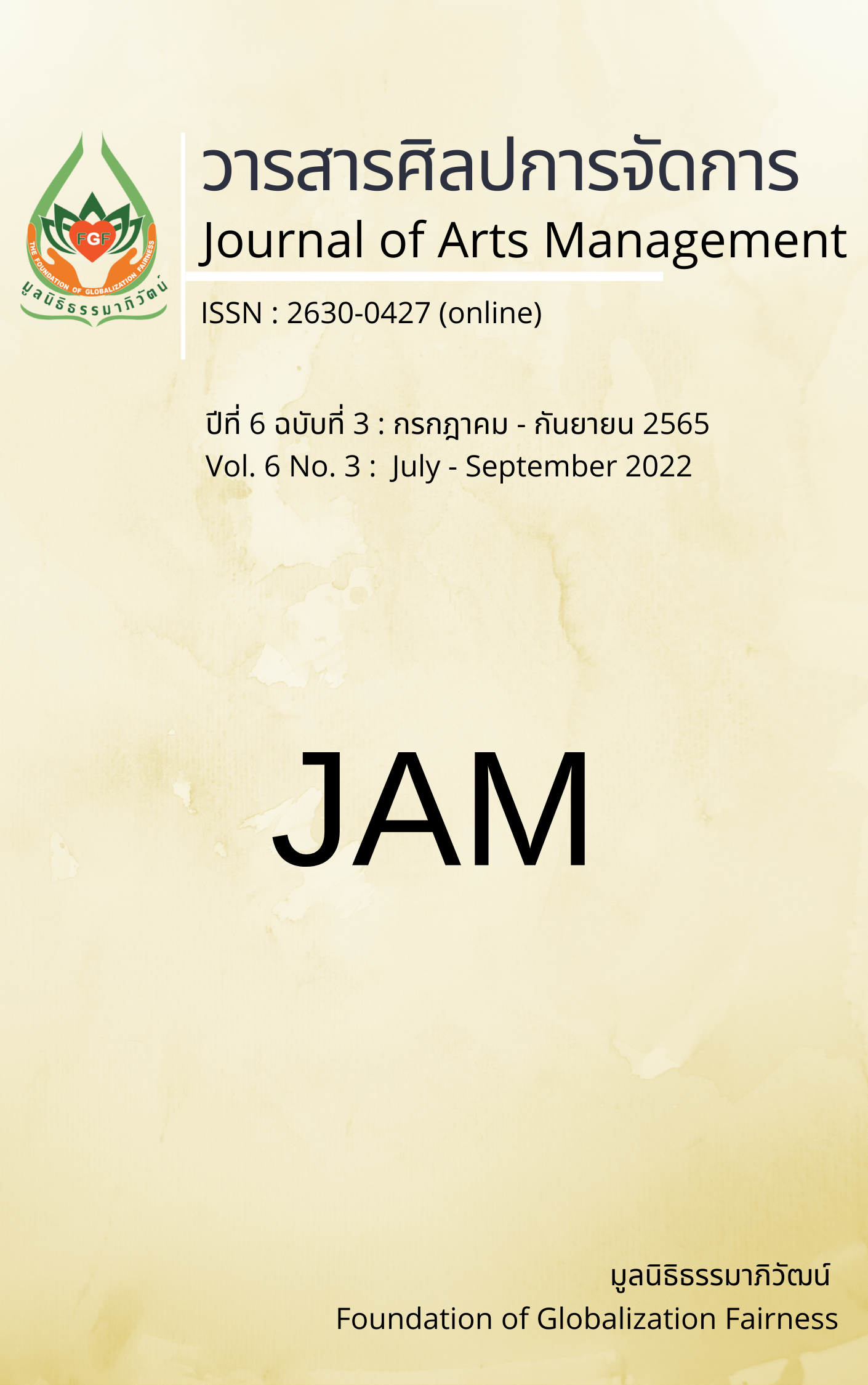Development of a Learning Model to Enhance Complex Thinking Skill for Secondary School Students at Demonstration Schools of Srinakharinwirot University
Main Article Content
Abstract
The article aimed to study components and develop a learning model to enhance complex thinking skills for secondary school students by applying a research and development approach. The key informants for the study of components of thinking skills were 7 teachers or educators who had academic work related to thinking skills. The sample group for assessing the effectiveness of the learning model was 25 students in the 7th grade of Ongkharak Demonstration Schooll, Srinakharinwirot University in Nakhon Nayok province, selected by the cluster random sampling method.
The results showed that (1) there were 4 components of thinking skills for the secondary school students, including analyzing, problem-solving, creating, and reflecting; (2) there were 5 steps of the learning model to enhance complex thinking skills for the secondary school student, including formulating ideas, connecting concepts, proposing solutions, applying in situations and reflecting lessons learned; and (3) The effectiveness of the learning model yielded that 1) The average score of the complex thinking skills of the secondary school students was gradually higher throughout the duration of study with statistical significance of .05. 2) The average score of the complex thinking skills of the secondary school students after the implementation of the learning model was higher before the intervention with a statistical significance of .05.
Article Details

This work is licensed under a Creative Commons Attribution-NonCommercial-NoDerivatives 4.0 International License.
Views and opinions appearing in articles in the Journal of Arts of Management It is the responsibility of the author of the article. and does not constitute the view and responsibility of the editorial team I agree that the article is copyright of the Arts and Management Journal.
References
Chanchang, J. (2020). Integrated teaching and learning management for the development of higher order thinking skills: learning to practice. Journal of Education Studies, 48(3), 78-89. https://so02.tci-thaijo.org/index.php/EDUCU/article/view/244986
Institute for the Promotion of Teaching Science and Technology. (2021). PISA assessment results 2018 reading, mathematics and science. The Institute for the Promotion of Teaching Science and Technology.
Joyce, B., Weil, M., & Calhoun, E. (2004). Models of teaching (7th ed.). Allyn and Bacon.
Khammani, T. (1999). Pedagogical science. Thai Wattanapanich.
Kingsai, K., Srihaset, K., & Tirakanant, S. (2021). A Study of digital survival skills of matthayom sueksa six students. Journal of Multidisciplinary in Humanities and Social Sciences, 4(2), 678-693.
Koo, T. K, & Li, M. Y. (2016). A guideline of selecting and reporting intraclass correlation coefficients for reliability research. Journal of Chiropractic Medicine, 15(2), 155-163. https://doi.org/10.1016/j.jcm.2016.02.012
Marzano, R. J., & Kendall, J. S. (2006). The new taxonomy of educational objectives. Corwin.
Morin, E. (2014). Complex thinking for a complex for a complex world–about reductionism, disjunction and systemism. Systema, 2(1), 14-22.
Office of the National Economic and Social Development Council. (2017). National economic and social Development Plan. https://www.nesdc.go.th/ewt_dl_link.php?nid=6422
Pedaste, M., Palts, T., Kori, K., Sõrmus, M., & Leijen, Ä. (2019). Complex problem solving as a construct of inquiry, computational thinking and mathematical problem solving. Proceedings of international conference on advanced learning technologies, 227-231. https://doi.org/10.1109/ICALT.2019.00071.
Phumphongkhochasorn, P., Damnoen, P. S., Suwannaprateep, T., & Phoomparmarn, U. (2021). National Educational Standards and the Improvement of Thai Education System with World Class. Asia Pacific Journal of Religions and Cultures, 5(1), 75-86.
Sternberg, R. J. (1985). Beyond IQ: A triarchic theory of human intelligence. Cambridge University.
World Economic Forum. (2020). The future of jobs report 2020. World Economic Forum.
Yoelao, D. et al. (2014). A study of PBL learning management derived from a knowledge set project to enhance 21st century skills of children and youth: from the success experience of Thai schools. Thiphayawisut.


